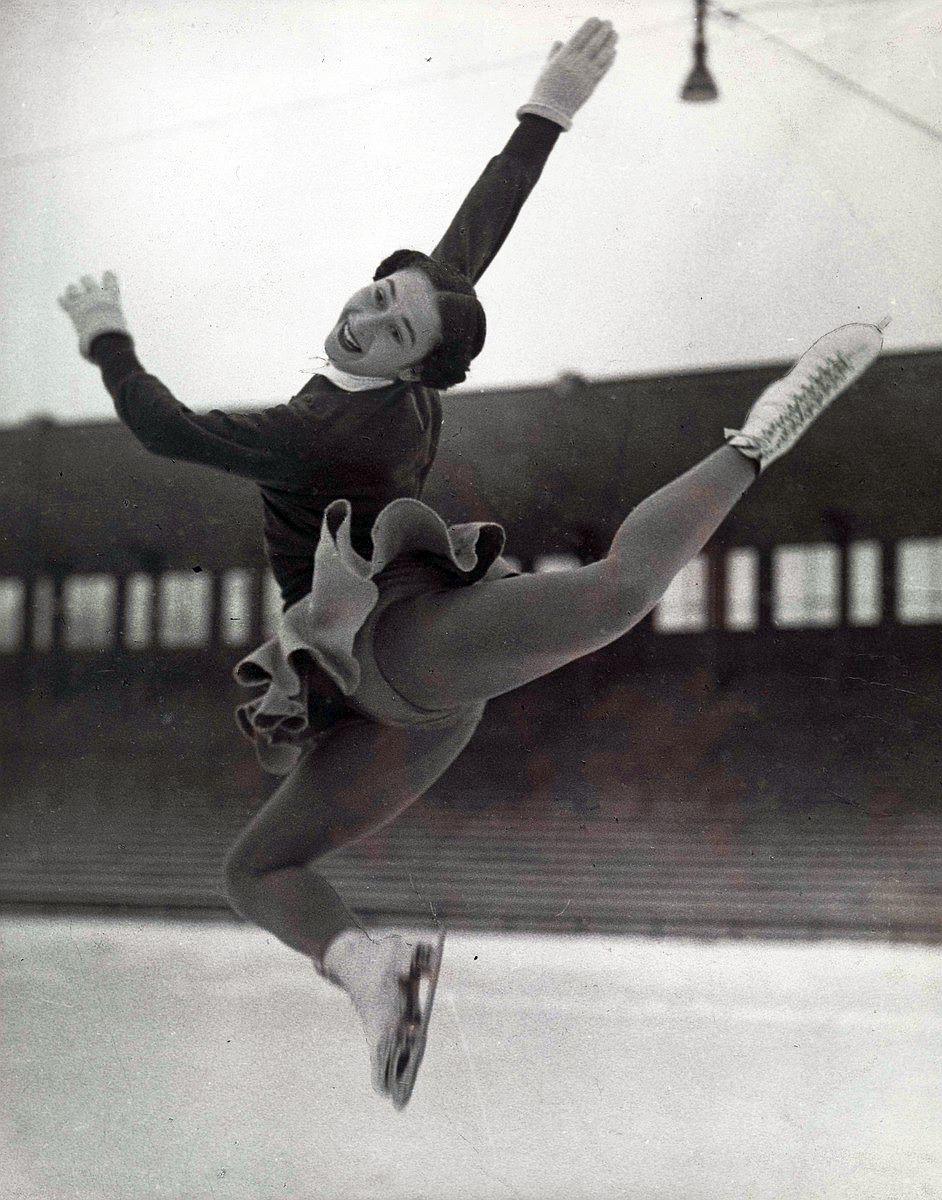1. Early Life and Background
Jacqueline du Bief was born on 4 December 1930 in Paris, France. Her early life in the French capital laid the foundation for her distinguished career in figure skating.
2. Figure Skating Career
Jacqueline du Bief developed into a versatile figure skater, competing at the highest levels in both ladies' singles and pairs disciplines during her amateur career. Her dedication to both aspects of the sport showcased her comprehensive skill set on the ice. During her amateur career, she was associated with the De Glace Club Paris and Français Volants Paris.
2.1. Ladies' Singles
Du Bief's career in ladies' singles was marked by consistent success and groundbreaking achievements. She secured the French national title for six consecutive years, from 1947 to 1952, demonstrating her dominance within France. On the international stage, she earned three medals at the European Figure Skating Championships: a bronze in 1950 in Oslo, followed by two silver medals in 1951 in Zürich and 1952 in Vienna.
Her most notable international successes came in 1952, a pivotal year for her career. At the 1952 Winter Olympics in Oslo, she earned a bronze medal in ladies' singles. Following her Olympic performance, she went on to win the gold medal at the 1952 World Figure Skating Championships held in Paris. This victory was particularly significant as it made her the first French female figure skater to become a World Champion in ladies' singles, a pioneering achievement for French sports. Prior to her world title, she had also secured a silver medal at the 1951 World Figure Skating Championships in Milan.

2.2. Pairs Skating
In addition to her singles career, Jacqueline du Bief also competed successfully in pairs skating. She formed a notable partnership with Tony Font. Together, they achieved national recognition by winning the French Figure Skating Championships in pairs for two consecutive years, in 1950 and 1951.
3. Competitive Career Highlights
Jacqueline du Bief's competitive career was distinguished by her consistent presence and medal-winning performances at both national and international events. The following tables summarize her results in ladies' singles and pairs skating.
3.1. Ladies' Singles
| International | ||||||
|---|---|---|---|---|---|---|
| Event | 1947 | 1948 | 1949 | 1950 | 1951 | 1952 |
| Winter Olympics | 16th | 3rd | ||||
| World Championships | 18th | 9th | 6th | 2nd | 1st | |
| European Championships | 7th | 3rd | 2nd | 2nd | ||
| National | ||||||
| French Championships | 1st | 1st | 1st | 1st | 1st | 1st |
3.2. Pairs with Tony Font
| National | ||
|---|---|---|
| Event | 1950 | 1951 |
| French Championships | 1st | 1st |
4. Professional Career
After retiring from amateur competition in 1952, Jacqueline du Bief embarked on a successful professional career. She joined various renowned ice shows and tours, performing for audiences across the globe. Her professional engagements included tours with popular productions such as Ice Capades, Hollywood Ice Revues, and Scala Eisrevue. She continued to perform professionally for over a decade, from 1952 until 1964.
5. Legacy and Assessment
Jacqueline du Bief's career left a significant mark on the sport of figure skating, particularly in France. Her achievements, especially becoming the first French female World Champion in ladies' singles in 1952, were a source of national pride and inspired a new generation of skaters. This pioneering accomplishment demonstrated the growing strength and potential of French figure skating on the international stage. Her consistent medal-winning performances at European and World Championships, coupled with her Olympic bronze, solidified her status as one of the leading figures in the sport during the early 1950s.
Beyond her competitive success, du Bief's transition into professional ice shows following her amateur retirement contributed to the popularization of figure skating as a form of entertainment. Her participation in major international tours helped bring the artistry and athleticism of the sport to a wider audience, demonstrating the potential for skaters to have a lasting career beyond competitive circuits. Her legacy is thus not only defined by her impressive collection of medals but also by her role in elevating the profile of figure skating both competitively and as a spectacle.
6. External links
[https://web.archive.org/web/20121014193813/http://www.ina.fr/video/CPF86635600/jacqueline-du-bief.fr.html Jacqueline du Bief 'Rendez vous avec' - 13/11/1957]
[https://www.olympedia.org/athletes/8286 Jacqueline du Bief at Olympedia]